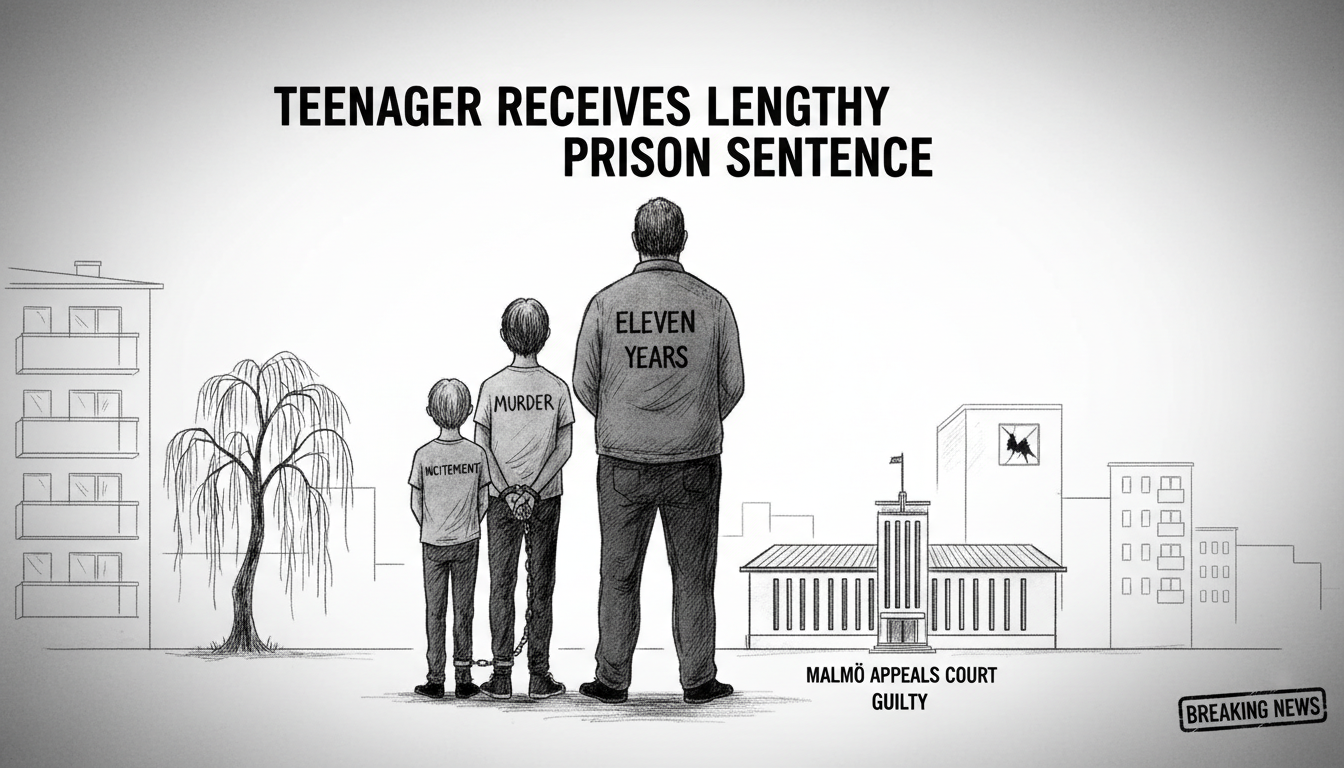A Swedish appeals court has upheld severe sentences against three individuals involved in a fatal shooting that shocked Malmö residents. The case centers on a tragic incident where a 50-year-old man was shot dead through his apartment window at Högaholm in Malmö. His family members were present inside the home during the attack.
Authorities confirmed the victim had no prior police record and no known threats existed against the apartment's residents. Investigators concluded the shooter targeted the wrong address entirely, making this a case of mistaken identity with deadly consequences.
Three defendants faced sentencing for their roles in the killing. A 16-year-old boy received an eight-year prison term for carrying out the murder. Another 16-year-old was convicted of incitement to murder after evidence showed he recruited and persuaded the shooter to commit the crime. He received four years in closed youth custody.
A 31-year-old man saw his sentence increased during the appeal process. The court strengthened his punishment from ten to eleven years imprisonment for aiding murder and serious drug offenses. The shooter maintains his innocence, claiming another individual fired the fatal shots.
This case highlights ongoing concerns about youth violence in Swedish urban areas. Malmö has witnessed several high-profile violent incidents in recent years, prompting increased police presence and community safety initiatives. The severity of sentences reflects the court's stance on organized criminal activity involving minors.
Sweden's legal system treats juvenile offenders differently than adults, focusing on rehabilitation while still imposing substantial penalties for serious crimes. The combination of prison sentences and youth custody demonstrates this balanced approach. Legal experts note that appeals courts rarely increase sentences unless new evidence emerges or procedural errors occurred in lower courts.
International readers should understand that Sweden typically has lower rates of violent crime than many countries, but cases like this receive substantial attention precisely because they remain relatively uncommon. The Swedish justice system's handling of juvenile offenders often draws international interest due to its focus on rehabilitation alongside punishment.
The increased sentence for the adult accomplice suggests the appeals court found particular severity in his involvement. Drug-related offenses combined with violent crimes typically receive harsh penalties under Swedish law. This case's resolution provides some closure to the victim's family while raising broader questions about preventing youth involvement in serious criminal activity.
Local communities continue working with police and social services to address root causes of youth crime. Malmö's location in southern Sweden near international borders presents unique challenges with cross-border criminal networks. The case's outcome sends a clear message about consequences for violent crime while highlighting the complex social factors underlying such incidents.

